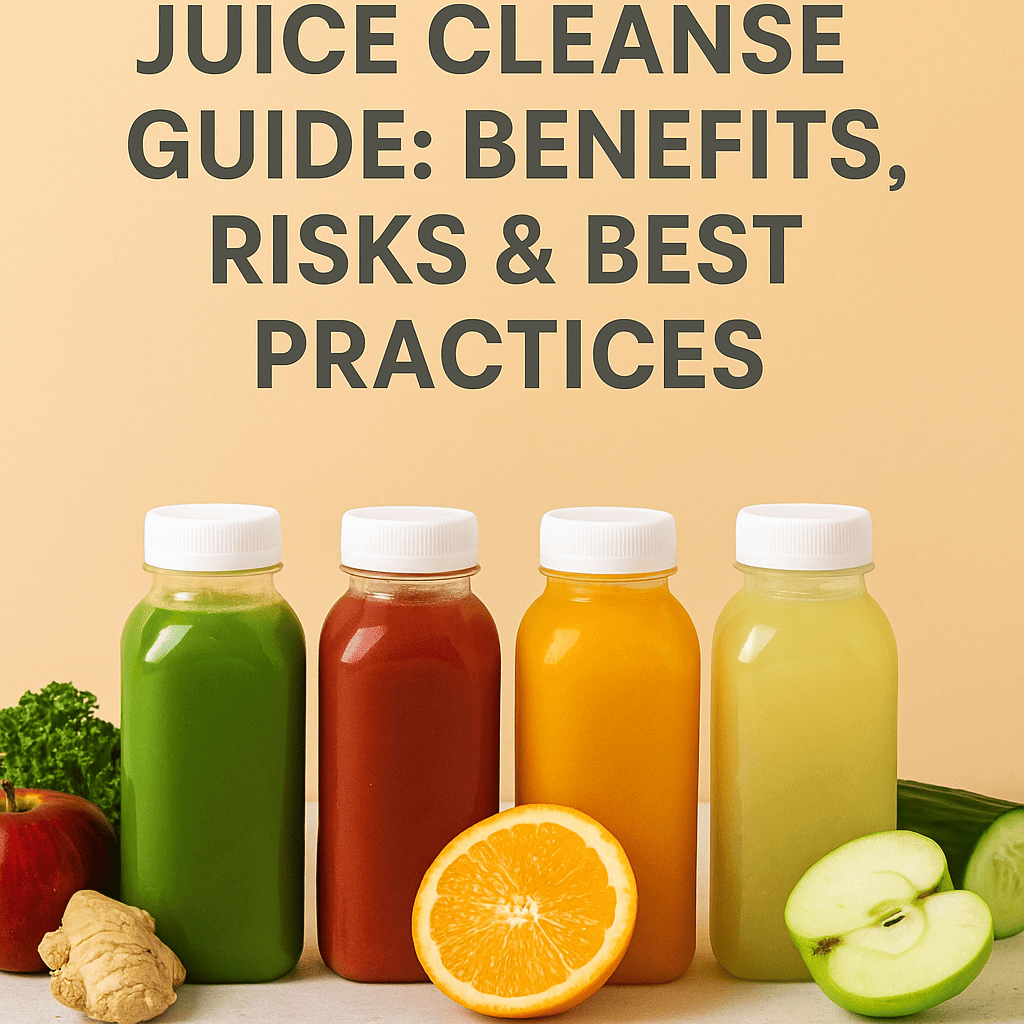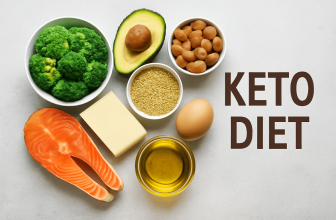
Introduction
Juice cleanses have surged in popularity over recent years. You’ve probably noticed people around you searching online for phrases like “juice cleanses near me,” “juice cleanses for weight loss,” or “juice cleanses for detoxification.” Others seek detailed opinions from platforms like Reddit, asking, “juice cleanses: good or bad?” or exploring their impact on gut health. As a certified nutritionist, I’ve witnessed firsthand the curiosity, enthusiasm, and sometimes skepticism surrounding juice cleanses.
This comprehensive guide will clarify whether juice cleanses are genuinely beneficial, their potential risks, and how to do them safely and effectively.
What is a Juice Cleanse?
A juice cleanse typically involves replacing solid food with fruit and vegetable juices for a short period, often ranging from 1 to 7 days. People frequently search questions such as “How many days is a juice cleanse?” because durations can vary depending on individual health goals and tolerance.
Popular Types of Juice Cleanses
Weight Loss Juice Cleanse
A primary reason people turn to juice cleanses is rapid weight loss. Typically lasting 3–5 days, these cleanses are low in calories and carbohydrates, causing significant short-term weight reduction, primarily from water loss.
Detoxification Juice Cleanse
These cleanses claim to flush out toxins, using ingredients such as celery, kale, lemon, ginger, and apple. Many individuals searching for “juice cleanses for detoxification” are aiming for better skin, improved digestion, and enhanced overall health.
Juice Cleanses for Gut Health
Gut health cleanses use juices rich in probiotics and anti-inflammatory ingredients. Those searching for “juice cleanses for gut health” often struggle with bloating, digestive discomfort, or inflammation.
Do Juice Cleanses Actually Work?
One of the most frequently asked questions online is, “Do juice cleanses work?” The answer is nuanced. Juice cleanses can indeed promote temporary weight loss, improved hydration, and provide a surge of vitamins and antioxidants. However, they’re not a magic cure-all. Any perceived detoxification is mainly due to reduced intake of processed foods and increased hydration.
Benefits of Juice Cleanses
Short-Term Weight Loss
Juice cleanses can kick-start weight loss by creating a calorie deficit. Although quick results might be motivating, remember this weight is mostly water and glycogen stores.
Nutrient-Rich Intake
Fresh juices provide a rapid infusion of vitamins, minerals, and antioxidants, temporarily boosting energy levels and enhancing skin appearance.
Digestive Reset
Juice cleanses offer your digestive system a rest from processing heavy or processed foods, which can alleviate temporary digestive discomfort.
Risks and Concerns
Despite their popularity, juice cleanses carry some risks:
Nutritional Deficiencies
Juices often lack protein, fiber, and healthy fats, leading to deficiencies and feelings of fatigue or dizziness.
Blood Sugar Imbalance
Without fiber, juices can cause rapid spikes and drops in blood sugar levels, risky for those with diabetes or hypoglycemia.
Muscle Loss
A prolonged juice cleanse can result in muscle loss due to insufficient protein and calorie intake.
Gut Microbiome Disruption
Extended cleanses may negatively impact gut bacteria balance, leading to digestive issues and inflammation.
How to Do a Juice Cleanse Safely
If you’re considering a juice cleanse, follow these professional recommendations:
- Short Duration: Limit your cleanse to no more than 3–5 days.
- Include Protein: Consider juices or smoothies with added protein from sources like almond milk or pea protein.
- Stay Hydrated: Drink plenty of water alongside your juices to maintain electrolyte balance.
- Monitor Your Body: Stop immediately if you feel unwell or excessively fatigued.
- Consult Professionals: If you have health conditions or concerns, consult your healthcare provider before starting.
Juice Cleanse vs. Colon Cleanse
Many online searches confuse juice cleanses with colon cleanses, another popular detox trend. While juice cleanses rely on dietary changes, colon cleanses typically involve procedures designed to clear the colon directly. Terms like “colonic” refer to specific procedures distinct from nutritional juice fasting.
Expert Answers to Popular Questions
Is a Juice Cleanse Actually Good for You?
While juice cleanses may offer temporary benefits like weight loss and improved digestion, they are not sustainable long-term solutions. Balance is crucial; combining juice cleanses with healthy eating habits offers better long-term results.
What Does a 3 Day Juice Cleanse Do?
A 3-day juice cleanse primarily leads to rapid water weight loss and might temporarily boost energy. It can also help reset eating habits by reducing cravings for processed foods.
Can You Lose Weight on a Juice Cleanse?
Yes, juice cleanses often result in quick weight loss due to calorie restriction, but most of this weight typically returns once regular eating resumes.
Realistic Alternatives to Juice Cleanses
Rather than relying exclusively on juice cleanses, nutritionists recommend:
- Balanced Diets: Emphasize whole foods, fruits, vegetables, lean proteins, healthy fats, and whole grains.
- Smoothies: Unlike juices, smoothies retain beneficial fiber, stabilize blood sugar, and provide sustained energy.
- Intermittent Fasting: Structured eating windows can naturally support weight loss and improved metabolism.
Conclusion
In summary, juice cleanses continue to attract attention from health-conscious individuals seeking quick results and detoxification. While they can offer short-term benefits such as temporary weight loss, improved hydration, and a surge in nutrient intake, it’s important to understand that they are not a long-term health solution. The effects of juice cleanses often fade once normal eating resumes, and relying solely on juices may lead to nutritional imbalances, fatigue, and other health concerns.
That said, when done correctly and for short durations, juice cleanses can serve as a useful reset or motivational starting point toward healthier habits. The key is to approach them mindfully—limiting the cleanse to a few days, choosing nutrient-rich juices, staying hydrated, and listening to your body’s signals. Integrating cleanses with a balanced diet, regular physical activity, and sustainable lifestyle changes is the most effective path to long-lasting wellness.
Ultimately, no cleanse or diet should replace the fundamentals of nutrition. Whole foods, variety, and moderation are what truly support gut health, weight management, and overall vitality. Before beginning any cleanse, it’s always advisable to seek guidance based on your individual health needs.




